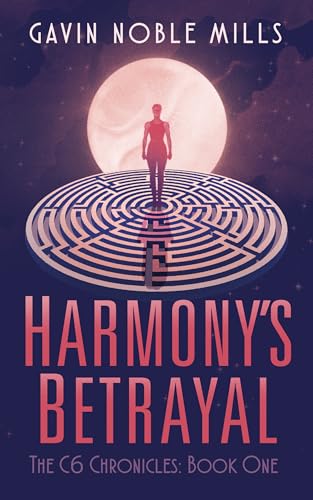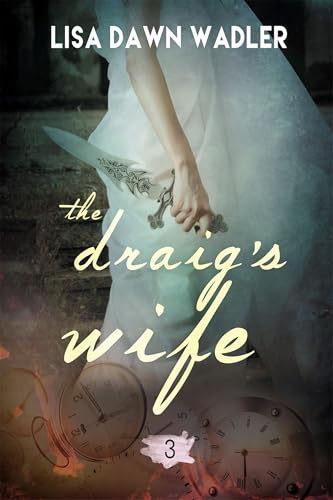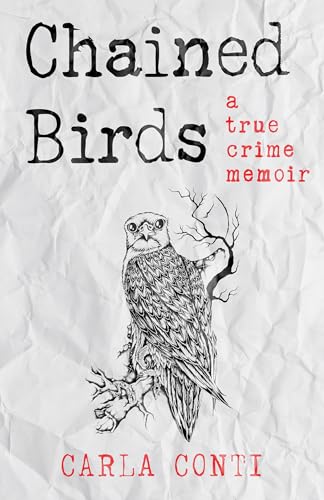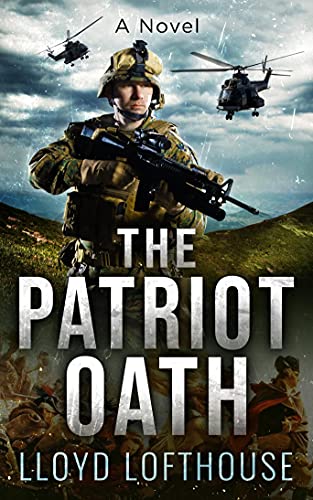Last week we announced that Bonnie Vanak’s The Falcon & the Dove is our Romance of the Week and the sponsor of thousands of great bargains in the Romance category: over 200 free titles, over 600 quality 99-centers, and thousands more that you can read for free through the Kindle Lending Library if you have Amazon Prime!
Now we’re back to offer our weekly free Romance excerpt, and if you aren’t among those who have downloaded The Falcon & the Dove, you’re in for a real treat:
The Falcon & the Dove (Khamsin Warriors of the Wind)
by Bonnie Vanak
In the 18th Dynasty of Egypt, there was born a love that could never be broken – that of a young queen and a great warrior. And while the warrior’s duty to combat the infidel was strict, and though his beloved was the wife of pharaoh, the two would be separated only by death. And then only for a time.THE LOVERS
Elizabeth Summers came to the dig at Akhetaten in 1892. Great things were being discovered! English archaeologists had made huge advances and Egypt’s fantastic history was being laid bare. But Elizabeth was not destined to simply study history – she was to be a part of it. Swept away by desert raiders, the pale beauty found herself in the arms of a great sheikh. And while Elizabeth didn’t know whether she was the reincarnation of an ancient queen, she realized that in this man’s arms she had found her destiny.
* * *
Free and Bargain Quality eBooks delivered straight to your email everyday – Subscribe now http://www.bookgorilla.com/kcc
* * *
And here, for your reading pleasure, is our free romance excerpt:
1892
The Khamsin’s descendants guarded Akhetaten as they always had, watching silently from horseback.
For generations, no one had dared disturb the city. And then the English arrived. Armed with sharp picks, shovels and arrogance, the infidels tore up the desert.
Jabari bin Tarik Hassid, sheikh of the Khamsin warriors of the wind, trembled with rage and grief as he observed the violation of holy ground. Emotions churned in his stomach at the utter desecration. With each swing of the pick, his heart ached as if the steel tip pierced there instead of the sacred sands.
Riding the finest Arabian mares, his warriors controlled their restless mounts. Tiny silver circles decorating the horses’ breast pieces jingled softly. His second-in-command gestured toward the excavation. Jabari snapped his spyglass shut and motioned to be patient. No. Not yet. Wait. Just a little while longer.
He breathed slowly, willing his emotions to calm. One palm tightened around his scimitar’s ivory hilt. The sheikh withdrew the blade and touched his hand to his heart and then his lips in the Khamsin gesture of honor before battle.
Jabari smiled, then let loose a loud, undulating cry. Now.
Time to attack.
Riding a donkey for three miles from the village of Haggi Quandil to the Amarna dig site had to prove her dedication to archaeology. Elizabeth Summers rubbed her sore behind and cursed. Couldn’t the beast plod along any faster?
She flicked the donkey’s reins. No use. The animal was more stubborn than Uncle Nahid. And it stank. No, it reeked.
No matter. Her senses had already adjusted to Egypt’s overpowering sights, smells and sounds. Sour sweat of unwashed bodies, fragrant spices, the delicious odor of roasting lamb on a spit. The babble of Arabic, stunning pink skies at sunset, shimmering heat that wrapped around her body like a warm cloak.
But nothing compared to the exhilaration of walking over sand that hid thousand-year-old mysteries. Elizabeth glanced at the lonely desert, wondering what awaited her at the excavation. Flinders Petrie had discovered the city once called Akhetaten, now called Amarna after the local village. Centuries of dirt coughed up history and she would participate in the discoveries.
Bordering the Nile, Amarna nestled in a flat valley eight miles long. Three miles to the east, steep limestone cliffs marked the beginning of the Arabian Desert. Sun baked mountains and valleys stretched for miles beyond the cliffs to the Red Sea.
Heat seeped deep into her bones. It felt good after Boston’s winter chill. Sleepy from the sun’s warmth, Elizabeth slipped into a familiar daydream. She was an ancient Egyptian royal returning from worshiping with her priests in the temple. Straight, blunt-cut black hair swung to her linen-draped shoulders. Dusty black kohl lined her sloe eyes. The cloying scent of myrrh clung to her clipped, rounded nails.
Her dream vanished as she remembered the reality. Uncle Nahid’s telegram said the team uncovered a plaster pavement about twenty-five feet long in Akhetaten’s central palace. Flinders had preserved the floor by coating it with tapioca and water using one finger. Uncle Nahid persuaded him to let her draw it. If her sketches impressed, perhaps he would let her do more. Maybe Flinders would even hire her as an artist for other excavations.
Then her shoulders slumped as she remembered the rest of Uncle Nahid’s cable. The rules: “Walk to the excavation. Flinders wants no animals onsite. When riding offsite, do not ride astride. Only men can excavate. Women aren’t strong enough. No swearing. No showing off your knowledge of the eighteenth dynasty. You’re only twenty-two years old and it isn’t polite to brag. No mention of any of those despicable suffrage activities in Boston. Above all, you must act like a lady.”
Already she had violated Rule Number One. Elizabeth glanced down at her bunched-up skirt and the very unladylike position of her legs. So much for Rule Number Two. Rule Number Three lay in wait. That one she was determined to break. Women weren’t strong enough to excavate? I can do anything a man can do. I’ll prove it.
Across the flat plain she saw a distant bustle of activity at the dig site, like black ants crawling over white frosted cake. She frowned. Black ants? Workers usually wore white…not black…and the sounds coming from the site echoed with frantic screams, not the singsong rhythm of picks and axes.
What in the name of heaven was going on? At the dig’s perimeter, Elizabeth jerked the reins, bringing her slow progress to a complete halt. Her jaw dropped at the chaos erupting before her. Dozens of indigo-robed men yelling blood-curdling cries trampled over the site.
Veils draped across their faces, they overturned wheelbarrows of dirt and tables holding artifacts. A paraffin lamp slid to the ground, splotching the tawny sand with oozing fuel. One warrior brandishing a long sword hacked at earthenware jars, sending precious quarts of fresh water gushing out. Stunned archaeologists scrambled out of their determined paths. Terrified diggers ran screaming from the fierce desert warriors. “Run for your lives,” one yelled. “The Khamsin!”
Her mouth went dry as she wildly surveyed the scene, looking for Uncle Nahid. Nervous fingers twisted stray locks that escaped the loosely pinned chignon at the nape of her neck. Earth flew up in miniature sand tornadoes, dogging her nostrils and making her sneeze. And then she saw it and her heart stilled. The palace floor. The delicate plaster Flinders had preserved flew in a dusty cloud as a warrior pulverized it with his horse’s flaying hooves. A shorter man watching from horseback twirled a long scimitar in the air, hooting with glee as he did the same.
This deliberate, malicious destruction infuriated her. How dare they? They were destroying history! Useless now to sketch it for nothing remained. The one chance she had to prove herself to Flinders disappeared under the pounding hooves. This last thought made her kick the donkey into action. It gave a protesting bray, but trotted toward the taller raider. Elizabeth stopped short of the pavement, sliding off the donkey and running up to the warrior with white-knuckled anger.
“Stop!” she screamed in Arabic. “What in the name of Allah are you doing? You are destroying the pavement! Oh, stop!”
The indigo-robed man whirled his mount around to face her. Probably he never had anyone, let alone a woman, tell him what to do before. Good! It’s about time someone did!
The indigo veil hid all but his eyes, black as the desert night. Elizabeth recoiled, flustered. She had never seen such intense, penetrating eyes before. For a minute she stared into them and felt as if she glimpsed a mirror into her own soul.
Then she saw the destroyed floor. Deep gouges scarred the beautiful design. Elizabeth sank to her knees with a loud wail. “Oh, look! It is all ruined! Ruined!” She sifted through the crumbled plaster.
The sword-wielding warrior leaned over his saddle, pointing his long, wicked blade at her. “Jabari, what do you want with this woman? Shall I take her captive? Or at least gag her mouth shut?” The man sounded bewildered yet menacing.
“No, Nazim, leave her be.” His deep, sensual tones caressed her. Elizabeth shivered at the raw power and command in that husky voice. The leader. Which made him responsible for this barbaric act. Her temper sailed out of control.
“How can you do this? Stupid, senseless destruction! Weeks of work, ruined! Haven’t you a brain in your head? Don’t you realize this is your past?” Arabic tumbled out of her mouth in a steady stream.
Then with a loud curse, she broke Uncle Nahid’s Rule Number Four. The leader’s dark eyes widened. Finely arched black brows rose as if her words bemused him.
“Jabari, did she just call you a donkey?” the one called Nazim asked in a wondering voice.
“No, I called him an ass!” she said in English. Elizabeth recoiled as Jabari fixed her with a steely look. Several warriors rode up, surrounding her like wolves salivating for a fresh kill. Suddenly she felt very small and very alone.
Then she looked at the ruined floor. Elizabeth picked up fragments of plaster. Hot tears stung her eyes. “How could you do this? You have no right invade and destroy this find,” she whispered, cradling the shards in her palms.
“No, my lady, you are wrong. We have every right, for this is our ancestors’ sacred city. You are the invaders.” Jabari stated with quiet dignity.
She looked up at him, frustrated grief mixing with a mystical sense of awe. There was something about the proud way he sat upon his horse, his long ebony hair spilling almost halfway down his back—as if he once ruled the sacred city with a firm hand. And the archaeological team was a horde picking everything clean like vultures tearing apart carrion. His erect posture reminded her of a powerful king capable of destroying enemies with one uttered command to his men.
Piqued by her odd reaction, Elizabeth stood and flung the plaster at him. It sprayed a white cloud over his blue robe. She lifted her chin skyward, daring him to react.
His piercing black eyes narrowed, but he snapped an order to his, men and they whirled their horses around, racing away. The leader’s mount snorted and danced with impatience.
Elizabeth’s courage wavered as he withdrew his sword. He twirled it gracefully, then lowered it to her. Sharp steel kissed the air near her face. She stood motionless, not daring to breathe as the blade’s dull edge stroked her throat. Then he drew his sword back and rumbled in a low threat. “Beware. You have not seen the last of us. I, Jabari bin Tarik Hassid, sheikh of the great Khamsin warriors of the wind, leave you with this warning. Leave our holy city now, or you will suffer the consequences. This I promise.”
Elizabeth watched him ride off into a cloud of dust, then vanish, like a hot, dry desert wind.
“What in the name of Allah was that?”
His second-in-command echoed his own bewilderment. Jabari shook his head as they rode through a dry riverbed that cut through the immense limestone cliffs sheltering Akhetaten. Pale gray rock formations passed as they pressed deeper into the wadi.
“Never have I seen a woman display such spirit. Or foolishness. Or passion…other than in bed,” Nazim marveled.
Jabari felt awed and angered. Such a woman! Fire in her heart and those haunting eyes, as lapis as the clear Egyptian sky. Her gaze had locked with his as if boring deep into his innermost soul. He took a long, calming breath to quell the emotions raging inside him. As leader of the Khamsin, he required a keen, alert mind at all times. Emotions were a luxury he could not afford. Emotions made one fuzzy-minded. Emotions diluted strength needed to wage war.
“Riding a donkey! She had courage while the samak ran like frightened sheep.” Nazim laughed and slapped his thigh.
Jabari smiled beneath his veil in agreement. Nazim called the English samak because they were as white as a fish’s belly. And equally soft and weak. But the woman, she was no fish.
“She called me an ass,” Jabari stated, still astonished. No woman in his tribe would dare raise her voice to the sheikh, let alone call him an insulting name.
“She would have called you worse if she spoke better Arabic,” Nazim pointed out. “At least she did not call you a donkey.”
“Why do you think she was there?” he asked.
Nazim gave a shrug barely decipherable under his binish. “Who knows why these Westerners do what they do. Perhaps they tire of playing in the sand and are starting their own harem.”
“I thought you said the Western men knew not how to make love to a woman. That they did not know the secrets of one hundred kisses or to rub her soft skin with perfumed oils, but flopped about like samak out of the water,” Jabari quipped.
“Flopped is the word. Their manhood is as soft-bellied as they are!” Nazim laughed.
Jabari snorted in shared derision as his stomach pitched and rolled. A woman among the infidel invaders.
The law was clear. Death came with swift swords to those disturbing the sacred hiding place of the Almha. Jabari and his men had no qualms about doling out the punishment with sharpened scimitars to foolish men who dared to try.
But a woman…that was another matter. Entirely.
“Do you think they will leave now?” Nazim asked. “Every time I see them picking at the earth, I feel sickened.”
Jabari looked at the hope in his amber eyes, understanding his best friend’s anguish.
“No, Nazim, they will not. They are stubborn, these English. It will take more than destruction to make them leave.”
“Perhaps my blade can convince them more.” Nazim withdrew his scimitar. Sunlight bounced off gleaming steel as he swished it through the air in an arc.
“Not unless they begin digging near the Almha. They are not even close. I want no unnecessary bloodshed,” Jabari ordered.
Nazim sheathed his blade, nodding. “Especially now that we know there is a woman present.”
Jabari closed his eyes, remembering the image the Englishwoman burned into his brain. She was a mirage in the distant heat that beckoned to him like a ripe pomegranate tempting a man mad with hunger. Her long, lacy white dress did little to disguise generous curves. A man could put both hands around that tiny waist and pull her into a tight embrace. Wind had reached beneath her straw hat and grasped in its fist strands of hair pale as golden sand.
He drew in a harsh breath, remembering her softness, the full lush lips and high cheekbones. Such proud elegance.
Opening his eyes, Jabari suppressed a groan of desire. The Western woman was an oasis for the eyes, but it wasn’t merely her body that made him long for her. It was her manner that captured his heart. Her regal confidence spoke of a woman as dignified as the ancient Egyptian royals.
Nazim broke into his thoughts with a lusty laugh. “And such a woman too. Those breasts. Did you see them? Huge!”
“I saw them,” Jabari said tersely. “I also saw how upset she was when I smashed the floor.”
“Heretic art in the palace where Nefertiti and Akhenaten lived. An obscenity to our people.” Nazim shook his head.
“She is a foreigner who does not understand the history of our tribe’s hatred for Nefertiti and reverence for Queen Kiya.”
“Nefertiti was a power-hungry whore.” Nazim removed his veil, leaned over and spat on the ground in disgust. He tucked the face cloth back into his turban, adjusting the headpiece.
This time Jabari let himself laugh. “My friend, if Nefertiti were alive, you would offer her to the English as a sacrifice.”
“And hand them my sword to do the deed.” Nazim’s amber eyes flashed with sudden humor. “She was beneath Kiya and should have never been appointed first wife.”
Nazim, like many of his fellow tribesmen, still held a formidable loyalty to Kiya. Lately Jabari found himself questioning that devotion to a long-dead queen. He had sworn a sacred oath to obey Kiya’s edict and kill whoever disturbed the Almha. But days like today, he felt the tug of duty pulling him two ways—as leader of his people and as the Almha’s chief protector.
He cast a sideways glance at his friend. “Nazim, do you believe in the legend of Kiya returning to us? That she will lead us to peace, and prosperity?”
Tiny lines formed at the corners of his eyes as Nazim scrunched his brow. “I believe in the power of true love. Is it not what founded our tribe—love for only one god? And Kiya’s love for Ranefer.”
Jabari snorted with impatience. “I believe more in the Almha’s powerful influence than in any love story. The Al-Hajid know it exists. If they find it, our enemies will have the power to rule my people because they cling to superstition that he who claims the Almha is worthy of worship as an ancient god.”
“That is why we guard it, Jabari. Why every time we see those English dig, my blood boils. They know nothing of the tremendous power of the disk or the agony our ancestors suffered in guarding it! Those grounds are sacred.” Nazim’s voice trembled with angry frustration.
“Steady my friend. I, too, hate what they are doing. Perhaps we did scare them off. Musab is there in disguise as a digger. He will report back to me if our plan worked.”
“If not, we will attack again,” Nazim said, calmer now.
Attack again, when so many more problems plagued their tribe? When his people faced hunger in the coming summer because of poor crop harvests last year? Staggering burdens of responsibility and leadership weighted his mind.
“I need to meet with the elders about breeding new horses for the season to increase our income,” Jabari half muttered, tugging at the reins. His exquisite white mare, a product of one such breeding, seemed to sense her master’s discomfort. She shook her head, making the blue tassels covering her muzzle dance.
“Easy, Sahar,” he crooned, patting her withers. “Soon, we will be home.”
“Home. Fresh camel’s milk. And dinner. I am starving and my mother promised to cook couscous for dinner,” Nazim complained.
“Your mother’s couscous could poison a dung beetle,” Jabari mocked.
“May the fleas of a thousand camels nestle in your crotch for insulting my mother’s cooking,” Nazim shot back.
“Better the fleas off one thousand camels than one flea off the backs of the English,” Jabari replied and both men laughed.
“Except that woman. I would not mind a flea off her back nestling in my crotch.” He gave his sheikh an amused wink in shared male camaraderie.
Jabari did not smile. His friend’s display of indifferent lust filled him with a jealous, disquieting anger. Her regal grace demanded dignity, not a crude inventory of her body parts, as becoming as those parts were. He shook his head, confused by the inner turmoil of emotions. Why was he so taken by a foreign woman when so much beauty rested within his own people’s tents?
She possessed a reckless courage and acted assured and highly intelligent. Jabari thought about this. Such a woman would never be quiet and meek, like the women in his tribe, but assertive and independent. Defiant even.
And dangerous. Jabari lost his mother when she asserted her independence. Better for him to have a submissive woman, who would obey and let him protect her, than to face another heartache.
He stared at the walls of rock, thinking of what a woman of fire the blond beauty was. Would she shiver with delight as he caressed her arms and led a trail of kisses down her neck? Or fight like a spirited horse that needed taming? Jabari’s loins tightened at the idea of that pleasure.
While studying in Cairo, he heard jokes that Western women living in the city were as fierce as warriors when bedded. Only the strongest men could handle them. This only intrigued Jabari.
He shifted in his saddle, tugging beneath his indigo binish at trousers that suddenly seemed too tight. Inwardly, he groaned. How long had it been since he’d allowed himself the pleasures of a woman in his arms?
A hesitant cough next to him drew his attention. Nazim gave him an odd look.
“Are you all right, sire? Is something binding you?”
“Fine,” he snapped. “You ride too slowly. Come, let us hurry.”
Jabari was glad his friend couldn’t read minds. Daydreaming about love play with a Western woman! Such fantasies were beneath a Khamsin chieftain.
But as they galloped off toward the high desert, he found himself dwelling on her. Clearly she shared with the English the same burning desire to discover what lay below the sand. Otherwise, she would not be there.
What would it be like to bed such a passionate spirit?
* * *
“Elizabeth, I praise Allah you arrived safe and sound and those jackals did not harm you.”
In a rare display of affection, Nahid Wilson hugged her. Born in Egypt, he returned there to live after receiving a science, degree from Oxford University. Nahid devoted his life to studying ancient Egypt, working with archaeologists like Flinders Petrie. He rarely traveled to Boston, except for a recent visit to help move his mother into a tuberculosis sanatorium.
Releasing Elizabeth, he scratched his salt-and-pepper beard. Hooded brown eyes swept over the ruins of the upturned camp. Nahid gestured toward the destroyed floor.
“At least Flinders sketched the pavement before they destroyed it. So you see what we face here. You must be very careful, Elizabeth. This is no ordinary dig.”
So Flinders had refused to wait for her artistic talents. Elizabeth nudged aside keen disappointment, worried more about the dig’s future than her moment of glory.
“Uncle Nahid, what is Mr. Petrie going to do? I can’t see him abandoning the dig. Not now.”
“We had no time to react. They rode like the wind … I couldn’t even grab my gun. Recently I met … a sheikh of a tribe not far from here. The Al-Hajid are the Khamsin’s worst enemies. If I hire a few to patrol the site, we will be protected. Those jackals will think twice about attacking again if the Al-Hajid guard our dig! When I see Flinders, I shall tell him.”
Elizabeth twisted a loose strand of hair around one index finger. Finally, she would meet the great man. This made her more nervous than confronting that desert warrior. Flinders had carved out a reputation as an austere eccentric with a demand for exacting detail. Every artifact, even rubbish, was cataloged. The eccentric part came from his odd behavior. At Giza ten years ago, he took to wearing only trousers and a pink vest. Outside the pyramid, that was. Inside…
“Is Mr. Petrie wearing … clothing?” she whispered.
His bushy brows contracted. “Elizabeth!”
“Well…you were the one who told me he measured the inside of the Giza pyramids totally naked!”
“It was hot and he was alone. Elizabeth, mind your tongue. Here he comes.”
To her relief the eminent archaeologist wore the same clothing as her uncle—white shirt with the sleeves rolled up, khaki trousers and sturdy shoes. Flinders’s bearded face looked brooding and his eyes bulged in a curious manner. His gaze roved around the site, until settling on her. Even after her uncle made introductions, his expression did not change.
Then his sight swept over her straying donkey, munching on the remains of a digger’s lunch of flatbread and cheese. Those large, inquisitive eyes bulged even more.
“He’s mine,” Elizabeth explained, lifting her shoulders. “I know you said no animals on the site, but I was so excited I couldn’t walk. I couldn’t wait to get here and see….”
“This?” Flinders gave a grudging smile as he gestured toward an overturned table. “Plenty to see before this fiasco. Fortunately, I preserved the pavement on paper.”
“The Khamsin will not attack again, Flinders,” Nahid stated. He outlined his idea as the archaeologist nodded.
“Excellent plan, Nahid. I heard of the Khamsin warriors of the wind. They veil their faces before enemies and strike as swiftly as the killing windstorm they are named after. Why they are interested in this site, I have no idea.”
“They are bloodthirsty cowards,” Nahid growled.
“But Uncle Nahid, they didn’t hurt anyone. If they were bloodthirsty, why did they spare lives?” Elizabeth thought of the way the sheikh’s blade caressed her throat and shivered.
“They will,” he grumbled ominously. “The sheikh has waited until now to attack but he will return. I sense it.”
“He said his name was Jabari,” Elizabeth mused out loud. “He warned me, us, to leave or suffer the consequences.”
As Nahid went into a sputtering fit about the consequences the Al-Hajid would deliver to Jabari, Elizabeth silently rolled the word on her tongue. Jabari. Ancient Egyptian name meaning “brave.” She suspected the sheikh deserved his name.
Why did she defend him? The man destroyed what she revered, then threatened her. Beware. Elizabeth scowled. Was she one of those romantic, starry-eyed girls who turned to mush over a man with an aura of danger about him?
She forgot the sheikh as a digger trotted over, bearing fragments of pottery recovered from the muddle. Elizabeth plucked a piece from his palms. A delicate shade of pink clay, its decorative edges reflected the style of early Aegean pottery.
“From Cyprus, probably. Proof that Egypt traded with other Bronze Age cultures,” Elizabeth murmured. She glanced up into the men’s faces. Flinders looked intrigued. Uncle Nahid—furious.
“Elizabeth, come with me. I want to talk with you.”
She handed back the relic and followed Nahid to a shaded field table that survived the destruction. He turned over two crates that served as chairs and beckoned her to sit.
He frowned in patriarchal disapproval. “Elizabeth, I’m quite disappointed in you. I didn’t bring you here to show off. You must maintain a low profile!”
“All I want is to join the excavation.” Elizabeth fumbled with a sketchbook and pen left on the table. “Why else would I have studied so hard? Besides, when we start digging for…”
Elizabeth stopped short as Nahid put a finger to his lips, imploring her silence. His gaze darted around the camp. She studied his face, guileless and smooth of expression. The dark, hooded eyes were adroit at concealing secrets from the rest of the archaeological team.
“Thank Allah the Khamsin dogs did not destroy all the palace. And they did not touch the temple,” Nahid said, changing the subject with an oily smoothness.
Elizabeth picked up a pen and dipped it into a well of India ink that had survived the destruction. She began doodling a pharaoh’s face with an elongated, skull, fleshy lips and slanted eyes. “The temple is a wonderful find. We can tell so much about the culture from the way they built their temples. They worshiped Aten, the sun god. Their temples were built open to the sky.”
“Akhenaten was not a typical pharaoh. He worshiped only Aten and moved the capital from Thebes to here to do so,” Nahid reminded her. “His enemies destroyed Aten’s temples and the entire city after he died. They even erased all memories of him from Egypt’s records. They called him a heretic.”
“Heretic or not, he built a fabulous city. Imagine what it was like in ancient days. Nobles living in columned houses with carved, gilded chairs, thick rugs and cushions. Priests offering worship in open-air temples to Aten. And Akhenaten himself, racing in his chariot down the road,” Elizabeth said dreamily.
“Imagine the wealth of gold they had,” Nahid replied in a hardened voice.
Elizabeth’s pen paused and she glanced upward. Seeing a covetous gleam in her uncle’s eyes, she suppressed a shiver. Time for her to change the subject.
“If I gain field experience here, I could get a job as an artist with another expedition.” She looked hopefully at Nahid.
“Don’t count on it.” His voice held a note of sympathy. “It’s men’s work. You’re something of an anomaly.”
She bent her head, unable to keep her lower lip from trembling. After a formal education at Vassar, the hard work, the fight to prove herself as an equal to the male students, and now Nahid crushed her hopes like bugs under his heels? She fought to keep her voice even.
“I grew up going with Daddy on digs all over the world. I can recite ancient Egyptian history better than half the men here. My Arabic is better than most, and my artwork is excellent. Why can’t I do what I love?”
Her uncle sighed. “Elizabeth, just because your father was an archaeologist doesn’t guarantee you a space as an artist in the field. Conditions are harsh in the best of circumstances and few women have the stamina for it.” He patted her hand in an avuncular manner. “Your studies will serve you well as a librarian. There’s a fine job for a woman.”
“A librarian.” A destiny resigned to shelving musty volumes in dimly lit spaces instead of the thrills of unearthing ancient history in the sunshine. Elizabeth felt all her hopes and dreams crumble into dust as fine as the Egyptian sands.
Nahid glanced around and lowered his voice. “‘You’ll have your chance later. When we find what we really came here for.”
Elizabeth nodded with resignation, but reprimanded herself. Her own dreams must yield to their real mission here.
“If the paper I found is correct, then Amarna is the place….” she started to say.
“Shhhh.” Nahid cut her off. He put a finger to his lips.
Elizabeth leaned over the table, whispering, “I pray we find the cure for Nana.”
In contrast to other sites, Amarna, located halfway between the ancient capital of Thebes and its modern capital, Cairo, had no treasures of gold and precious gems. Or so everyone thought.
Everyone but Elizabeth and Nahid.
And they’d be damned before they told anyone how Elizabeth found a piece of papyrus tucked away in a secret compartment of her grandmother’s treasured mahogany chest. A very interesting papyrus that told of the Almha, a golden disk as bright as the sun, buried in an ancient city called Akhetaten.
It was, after all, a family matter.

















